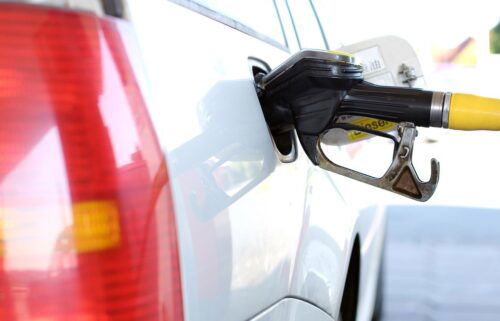Officials talk about hot car dangers
IDAHO FALLS, Idaho (KIFI)- Idaho Falls Police and the Medical Director of the pediatric intensive care unit at Eastern Idaho Regional Medical Center are reminding people about the dangers of leaving kids, pets, or other vulnerable people in cars.
Sergeant Sage Albright with the IFPD says this time of year, they get two or three calls a week about a kid or animal in a car. Also saying when they find the caretaker, they'll write it off, saying it's okay because a window was cracked open.
"That's not a good excuse." Albright said, "That doesn't really do anything to really alleviate the distress of whoever's inside the car, cause it doesn't reduce the temperature."
The greenhouse effect still works, and the car still heats up even if you think it will only be a few minutes.
"The issue is we all know when we go into the grocery store, so often 'I'm just going in for that gallon of milk.'' Albright continued "But then it ends up being bread, and eggs, and then we see somebody you know, we see a neighbor or family member and we end up talking. And you're in there a lot longer than you think you were."
Doctor Daniel Sedillo said cars can heat up in a matter of minutes.
"Studies and demonstrations show when the outside ambient temperature is 80 degrees Fahrenheit, a car parked outside can heat up to 110, 120 degrees within 30 minutes." Sedillo explained, "And that can be hot enough to make anybody uncomfortable, but especially a child."
Sedillo also said kids can heat up a lot quicker.
"Their set temperature is higher than adults by half a degree or so," Sedillo said "More often than not, they're fully clothed, they're in a car seat, so they can't dissipate their heat by sweating or just circulating air."
And once their temperature reaches that fever level of 100.4, they could eventually suffer heatstroke and possibly end up in a coma.
Albright said if coming across a person or pet left in a hot car, the first thing to determine is figuring out how much help they need.
"If it's obviously so bad that they need help now, take that action." Albright said, "You can do things like break a window, you can enter somebody else's car to alleviate somebody who's in obvious distress."
Albright also says if you think there's time, call for help, but always intervene.
"That's one of the great things about our community is there are so many people willing to help each other, and that's one of those times where you can really be helpful," Albright said.
Albright also says the best way to avoid a situation like this, is to just avoid the situation altogether, by not leaving kids or animals in the car period.
He also recommends leaving something like a phone, purse, or work ID badge in the back, next to the car seat or pet to help remind yourself there's someone in the back.





